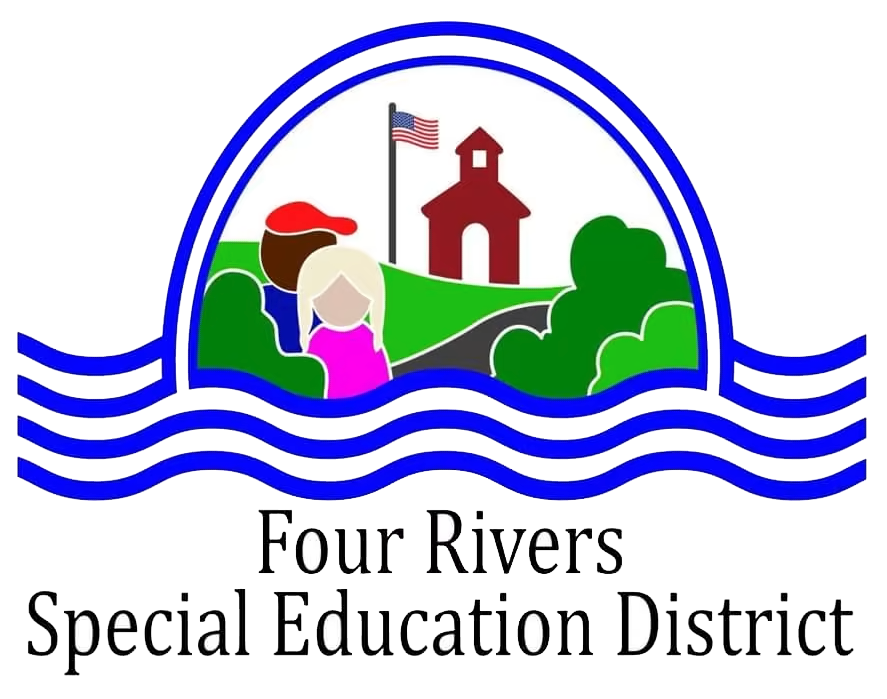Early Childhood
About Early Childhood
The Four Rivers Early Childhood Special Education Program provides special education services for children 3-5 years of age who exhibit delays in one or more areas of development.
Eligibility is applied when the Eligibility Determination Conference (EDC) participants determine the delay has an adverse effect on learning and requires special education services to address an educational need. Eligibilities for services include the following areas: Developmental Delay, Speech and Language Impairment, Intellectual Disability, Orthopedic Impairment, Specific Learning Disability, Visual Impairment, Hearing Impairment, Deafness, Emotional Disability, Other Health Impairment, Multiple Disabilities, Autism and Traumatic Brain Injury. It should be noted that these eligibilities may change depending on whether criteria is met for any of the above eligibilities.
If eligibility is determined, an Individualized Education Program (IEP) is developed by the IEP team. The initial IEP team will consist of the following members: Administrator, Local Educational Agency (LEA), School Psychologist, Special Education and General Education Teacher. Outside agency representatives and/or related service providers may be included on the team. Related services such as speech therapy, occupational therapy and physical therapy are provided to children when these services are recommended and considered a necessary support to the child’s educational program. The IEP team writes goals and objectives specifically for an individual child and is developed prior to the child’s entrance into the program. The IEPs are revised annually by the IEP team.
Currently, Special Education services are provided within two types of programming-Early Childhood Special Education (ECSE) and Early Childhood Inclusion Support (ECIS).
There are presently 6 Early Childhood Special Education classrooms. These are located regionally throughout the nineteen districts served by the Four Rivers Cooperative. ECSE classrooms are cross-categorical which means that children with a variety of delays and developmental levels may be served within the same ECSE classroom.
Each classroom may be assigned a maximum of 10 children per half day session and is staffed with a teacher and an aide. The classes are 2 ½ hours long, five days per week. Each local district provides transportation to and from the class. If 2 or more programs/classes are located in one region, student placement may change during the time the student is in the Early Childhood Program. For example, a student may attend class in the morning one year and may attend the afternoon class the next year. Placement with the same class or teacher is not guaranteed from year to year. The needs and supports of each student are assessed each year, thus creating the possibility that students may experience a change.
ECSE- Early Chilhood Special Education
EC teachers and aides serve students for 2 ½ hours in a self-contained classroom setting. Every child has an IEP
Students’ skills are significantly lower than those of typically developing peers
Related services can include speech, OT, PT, Social Work, Vision and Hearing support. Programs given by these related service providers are reinforced in the classroom, providing a more therapeutic environment for the student.
Students have medical needs that could require nursing care.
ECIS- Early Chilhood Inclusion Support
Four Rivers provides children who are attending local Pre-K -HeadStart programs with inclusion support services. EC Special Education teachers serve students in the Pre-K, HeadStart, private pre-school, or home-hospital (students are medically designated not able to school by a physician) settings for up to 90 minutes a week. Services can be inside or outside the general PreK classroom depending on the needs of the student.
Students not attending a program are served in an agreed upon location, typically a place in the school.
Students’ skills are close to or at the level of typically developing peers
Related services typically include speech and sometimes OT, PT, Social work or vision/hearing.
Early Childhood Special Education services are designed to provide specific learning activities for children within a developmentally appropriate framework. Due to the developmental level of the children, activities are designed to incorporate play-like materials while also using a variety of different teaching strategies to build upon the child’s individual strengths and to improve areas of weakness. While instruction may take place within a small group or whole class setting, lessons are designed to address children’s individual needs within the context of the activity taking place.
